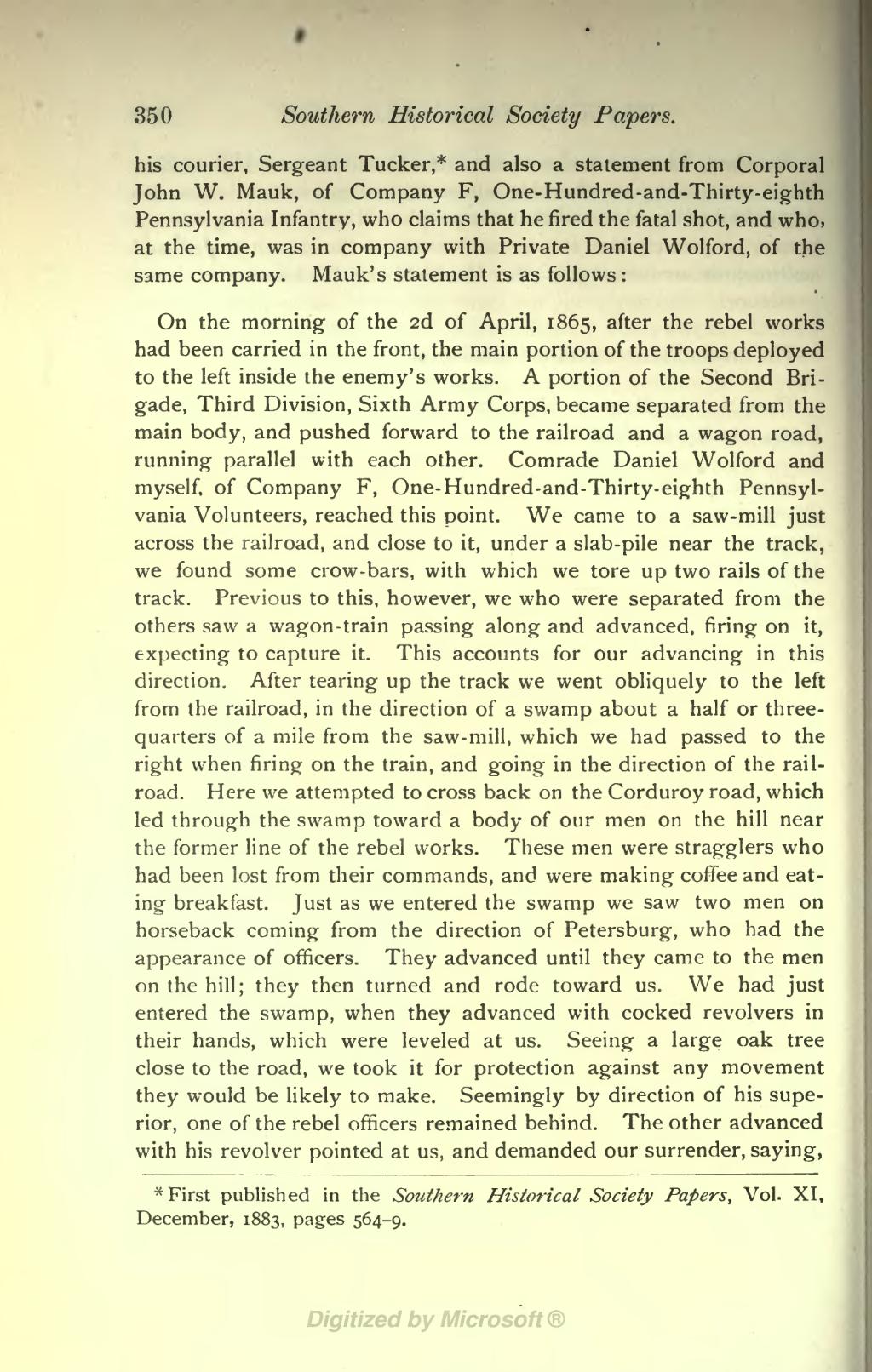350 Southern Historical Society Papers.
his courier, Sergeant Tucker,* and also a statement from Corporal John W. Mauk, of Company F, One-Hundred-and-Thirty-eighth Pennsylvania Infantry, who claims that he fired the fatal shot, and who, at the time, was in company with Private Daniel Wolford, of the same company. Mauk's statement is as follows :
On the morning of the 2d of April, 1865, after the rebel works had been carried in the front, the main portion of the troops deployed to the left inside the enemy's works. A portion of the Second Bri- gade, Third Division, Sixth Army Corps, became separated from the main body, and pushed forward to the railroad and a wagon road, running parallel with each other. Comrade Daniel Wolford and myself, of Company F, One-Hundred-and-Thirty-eighth Pennsyl- vania Volunteers, reached this point. We came to a saw-mill just across the railroad, and close to it, under a slab-pile near the track, we found some crow-bars, with which we tore up two rails of the track. Previous to this, however, we who were separated from the others saw a wagon-train passing along and advanced, firing on it, expecting to capture it. This accounts for our advancing in this direction. After tearing up the track we went obliquely to the left from the railroad, in the direction of a swamp about a half or three- quarters of a mile from the saw-mill, which we had passed to the right when firing on the train, and going in the direction of the rail- road. Here we attempted to cross back on the Corduroy road, which led through the swamp toward a body of our men on the hill near the former line of the rebel works. These men were stragglers who had been lost from their commands, and were making coffee and eat- ing breakfast. Just as we entered the swamp we saw two men on horseback coming from the direction of Petersburg, who had the appearance of officers. They advanced until they came to the men on the hill; they then turned and rode toward us. We had just entered the swamp, when they advanced with cocked revolvers in their hands, which were leveled at us. Seeing a large oak tree close to the road, we took it for protection against any movement they would be likely to make. Seemingly by direction of his supe- rior, one of the rebel officers remained behind. The other advanced with his revolver pointed at us, and demanded our surrender, saying,
- First published in the Southern Historical Society Papers, Vol. XI,
December, 1883, pages 564-9.
